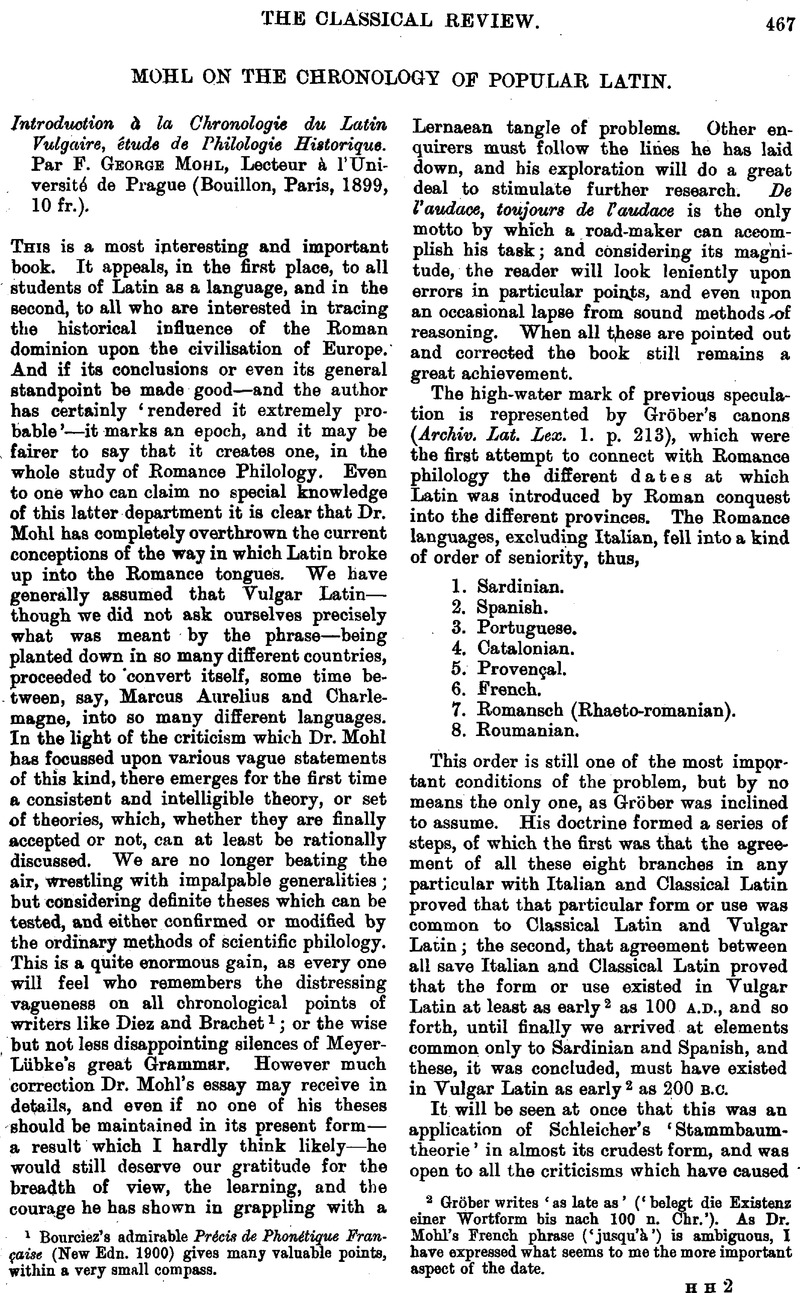No CrossRef data available.
Published online by Cambridge University Press: 27 October 2009

page 467 note 1 Bourciez's admirable Précis de Phonétique Française (New Edn. 1900) gives many valuable points, within a very small compass.
page 467 note 2 Gröber writes ‘as late as’ (‘belegt die Existenz einer Wortform bis nach 100 n. Chr.’). As Dr. Mohl's French phrase (‘jusqu'à’) is ambiguous, I have expressed what seems to me the more important aspect of the date.
page 468 note 1 The italics are mine. The phrase recurs on p. 246; Dr. Mohl avows rather frankly the weak joints in his armour.
page 468 note 2 Mohl hesitates to recognise non-Latin Nominatives in Samnis, Arpinas, etc. (Brugmann, Grundr. i. 1 p. 551). But Brugmann seems to me certainly right, though he has removed the remark from his second edition. The whole formation in -ti- is non-Latin, as I hope to show in a forthcoming paper on the Eethniea of Italy.
page 468 note 3 They were so frequent that, with a few similar documents, they seemed to call for a special numeration, see the ‘Notes’ (i–xliii) passim.
page 468 note 4 But not the Latin of the Duenos-inse., as to which Dr. Mohl seems under some strange delusion (pp. 304–5). The sign o (i.e. c in retrograde script) appears only in uirco, cosmis, pacari, feced; and it probable in feced, possible in pacari that we should read k instead of c; k occurs nowhere else. What could be further from the facts than to say that we have here a distinction of ‘ k velaire, c palatal’?
page 469 note 1 I do not think Dr. Mohl quotes the very important remark of Suetonius (c. 88) about Augustus' bad spelling.
page 469 note 2 Mohl does not explicitly mention the point which seems to me to place this explanation almost beyond doubt, namely that this Inf. is especially regular in quasi-public documents, street-warnings and the like; where the legal Impf. Subj. in Latin (e.g. in Senatus Consults) was regular.
page 469 note 3 I do not wish to be understood as accepting more than the general principle of this theory. For example (p. 311) the spelling Iiovina is the merest freak of priestly etymology, as I hare shown in Ital. Dial. p. 405 footn.
page 469 note 4 The title is perfectly sound, in spite of the curious (and suggestive) juxtaposition.
page 469 note 5 So Mohl. On the precise date see Bury, in his Edition of Gibbon, II. 157, footn. 65.